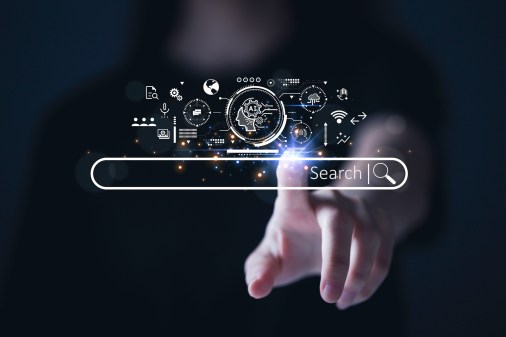Big data and the examined life
Although the human population increases about 1 percent each year, the quantity of information we produce reportedly doubles every 18 months. In 2011, according to one report, humans had generated 1.8 trillion gigabytes — enough to fill so many 32 GB tablets that, stacked, they would build a wall twice as tall as the Great Wall of China. By 2020, the amount of data worldwide could exceed 40 trillion GB.
One reason for this exponential growth: mobile phones. More than half the global population owns at least one cell phone, reports the social media agency We Are Social. We don’t stop at just one: There are more mobile-service accounts than people in the world.
Wearables including watches, bracelets and clothing add to the information stream, as do devices including our cars and home appliances, making us all destined, it seems, to become human data factories.
Knowledge is power
What does all this data reveal about us? Nearly everything.
Online, our every keystroke adds another byte to the data pool, revealing our desires and quandaries, our values and opinions, our acquisitions and hobbies, our tastes in music, our favorite sports teams, our viewing and reading habits.

JR Reagan writes regularly for FedScoop on technology, innovation and cybersecurity issues.
Apps and other tools report how much we sleep at night and how well, how many steps we take in a day, what we eat and drink — and how much, how intelligent we are, how much we travel and where we go, how much energy we consume, how much CO2 our activities generate, how much money we have and how we use it, and much more.
Orwellian though it may sound, all this information offers vast potential to improve and even extend our lives.
Already we are reaping the benefits. The “quantified self” movement, with its focus on individual monitoring and analysis, includes members whose data has helped them to lose weight, drink less alcohol, drink more water, save money, work more efficiently, manage their time better, become more physically fit, read faster, improve their memories, meet personal goals, manage chronic illnesses, improve their physical environment — and the list goes on.
The more we know about ourselves, the more we want to know.
Innovations in “consciousness hacking,” including brain tracking and augmentation — new frontiers in self-improvement — aim to monitor and direct our moods as well as to improve cognition.
Nanoparticles ingested in pills may someday provide an in-depth look at health, detecting very early such conditions as cancer, artery blockages and nascent diabetes.
Increasingly popular DNA tests can delve even more deeply, showing us our inherited tendencies and helping medical professionals to tailor treatments to match our individual makeup.
Big data = big solutions
Data’s potential extends far beyond enriching and prolonging individual lives, however. Shared freely — and, if desired, anonymously — “open source” data can provide us with big-picture scenarios that, properly analyzed, may benefit entire communities, or even the world. Why is autism on the rise? How will changing climates affecting food production? What innovations would best benefit my city, state, region or nation?
“The unexamined life is not worth living,” Socrates said some 2,400 years ago. How, then, might the data we generate, and its subsequent analysis, add value and meaning to our lives today and tomorrow? With an unprecedented trove of knowledge at our behest, we become as omniscient as the philosopher’s gods, able to foresee a future in which anything is possible.
JR Reagan is the global chief information security officer of Deloitte. He also serves as professional faculty at Johns Hopkins, Cornell and Columbia universities. Follow him @IdeaXplorer. Read more from JR Reagan.






